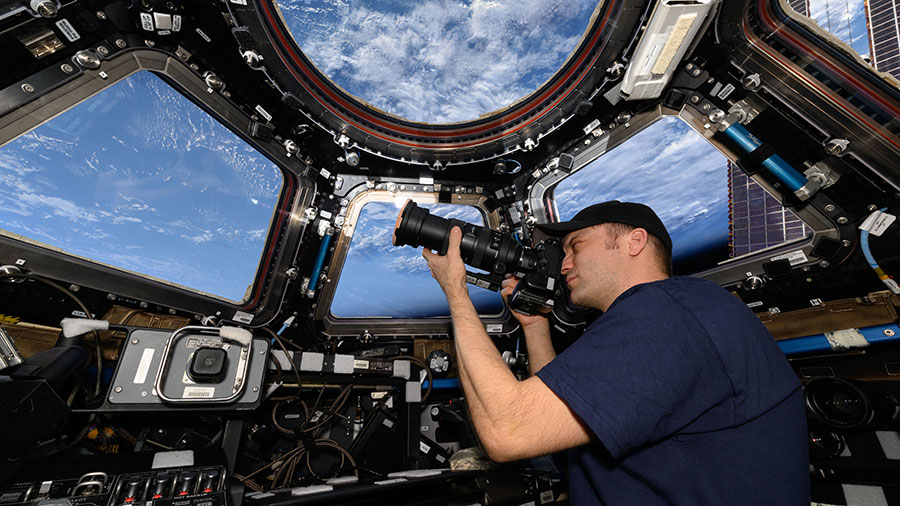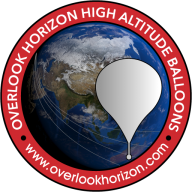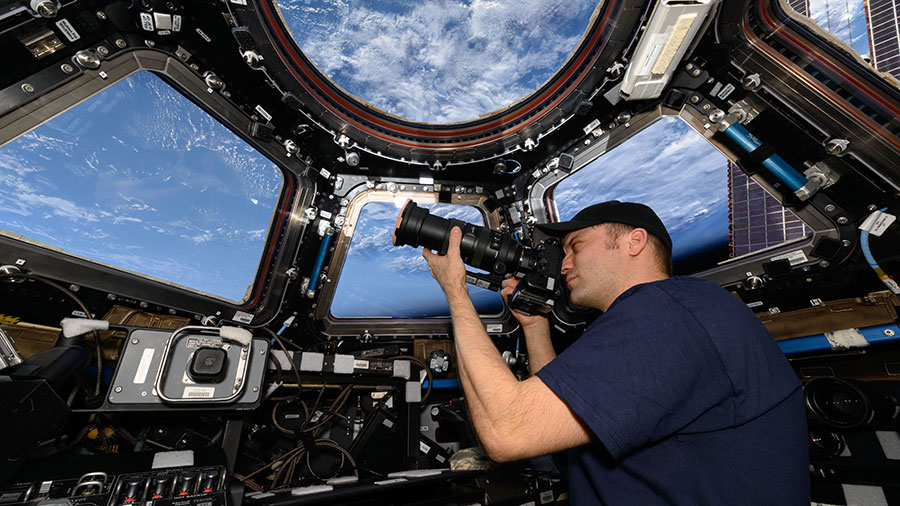
NASA and SpaceX mission managers are now targeting Wednesday, Oct. 23, for the departure of the Dragon Endeavour spacecraft and its four Crew-8 members. Weather conditions are improving off the coast of Florida but officials will wait for one more weather report scheduled for early Wednesday before choosing a final undocking time and splashdown location for the Commercial Crew quartet.
NASA astronauts Matthew Dominick, Mike Barratt, and Jeanette Epps, and Roscosmos cosmonaut Alexander Grebenkin are nearing the end of a seven-and-a-half month space research mission that began with a launch aboard Dragon on March 3. Dominick will command the spacecraft, leading Barratt as pilot with Epps and Grebenkin as mission specialists, back to Earth for a parachute-assisted splashdown on Friday at a site and time yet to be chosen.
The homebound foursome woke up late again on Tuesday sleep shifting to accommodate the after-hours undocking activities. Expedition 72 Commander Suni Williams and Flight Engineers Butch Wilmore, Don Pettit, and Nick Hague, all NASA astronauts, also woke up late as they prepare to assist the Crew-8 members and ready the International Space Station for Dragon’s undocking.
The three cosmonauts staying behind on the orbital lab, Flight Engineers Alexey Ovchinin, Ivan Vagner, and Aleksandr Gorbunov, kept a normal schedule on Tuesday staying focused on space science and orbital maintenance. Ovchinin and Vagner took turns in the morning attaching sensors to themselves measuring their breathing rate. Afterward, Ovchinin observed the effects of natural and human impacts on Earth using a hyperspectrometer while Vagner packed trash inside the Progress 88 resupply ship. Gorbunov attached sensors to himself for a 24-hour session measuring his heart rate and blood pressure then serviced ventilation components in the Nauka science module.
Learn more about station activities by following the space station blog, @space_station and @ISS_Research on X, as well as the ISS Facebook and ISS Instagram accounts.
Get weekly video highlights at: https://roundupreads.jsc.nasa.gov/videoupdate/
Get the latest from NASA delivered every week. Subscribe here: www.nasa.gov/subscribe

